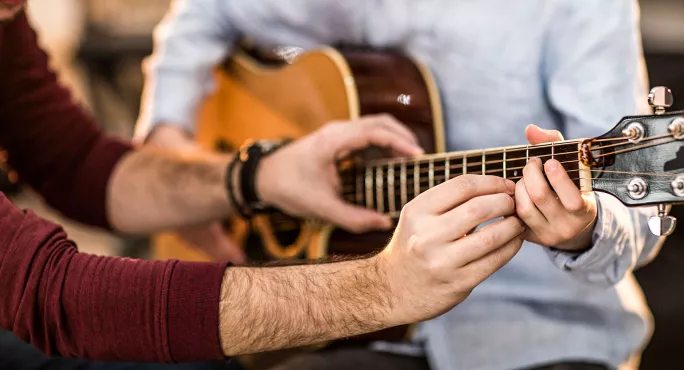Music is usually at the forefront of technology, and those engaged in its teaching often find it useful and efficient in a number of ways.
But something has felt different about the advancement of artificial intelligence (AI).
For the first time that I can remember, tutors - many of whom have considered themselves technological trailblazers over decades - were suspicious.
They looked beyond the immediate support it could provide and began to wonder: will these technologies render us obsolete?
Far from leaving singers without a song, however, we’ve spent the past few months reaching the opposite conclusion.
At our school of music in the south of Edinburgh, we’ve trialled a number of different AI developments to see if it could indeed be beneficial to pupils and teachers.
And there were some plus points.
It can help with scales and with tuning, and its sheer speed means pupils can have musical accompaniment with their own instruments in seconds.
But when it comes to the art of tuition, there is almost nothing presented by AI that should worry those whose profession it is to help guide students through the learning process.
It didn’t take long to realise that the lack of a personal touch is a hammer blow when it comes to music lessons.
We can see that in AI’s failure to spot subtle issues such as the incorrect placement of hands on an instrument, or nuances in relation to posture.
A failure to spot these problems at an early stage can lead to bad habits that are difficult to shake; from that perspective, AI is not just ineffective - it could actually be complicit in harming a musician’s development, possibly to an irreversible extent.
Coping with setbacks
We also observed that AI couldn’t respond in any way, shape or form to confidence issues or, on the other end of the spectrum, complacency.
Without these qualities, music tuition can’t reach anything like its potential, and therefore nor will the pupils.
We can also see AI’s failings beyond the technical training and practice.
We teach all our musicians to prepare for live performance. That means getting them in the zone for playing in front of an audience, coping with nerves and on-stage setbacks, and harnessing that particular student’s personality and how it could affect a live concert scenario.
AI can be of assistance in the recording studio, but it can’t teach a pupil how to maximise their abilities in a studio setting, or how to ease out negative traits that can result in suboptimal material.
The power of human interaction
We’ve witnessed a lot of change in the music lesson world in the past few years.
We now teach more adults than children, a symptom of people reassessing their leisure time in the wake of Covid.
And we have an increased ability to support our pupils remotely on Zoom or Teams should they not be able to make it in for a lesson.
But no matter how advanced AI gets, there’s simply too much it cannot and will never replicate in how we teach music.
Teachers and pupils alike should take comfort in that. Their human interactions will continue to be far and away the most important attributes.
Linda Boyd is director of Morningside School of Music, in Edinburgh





